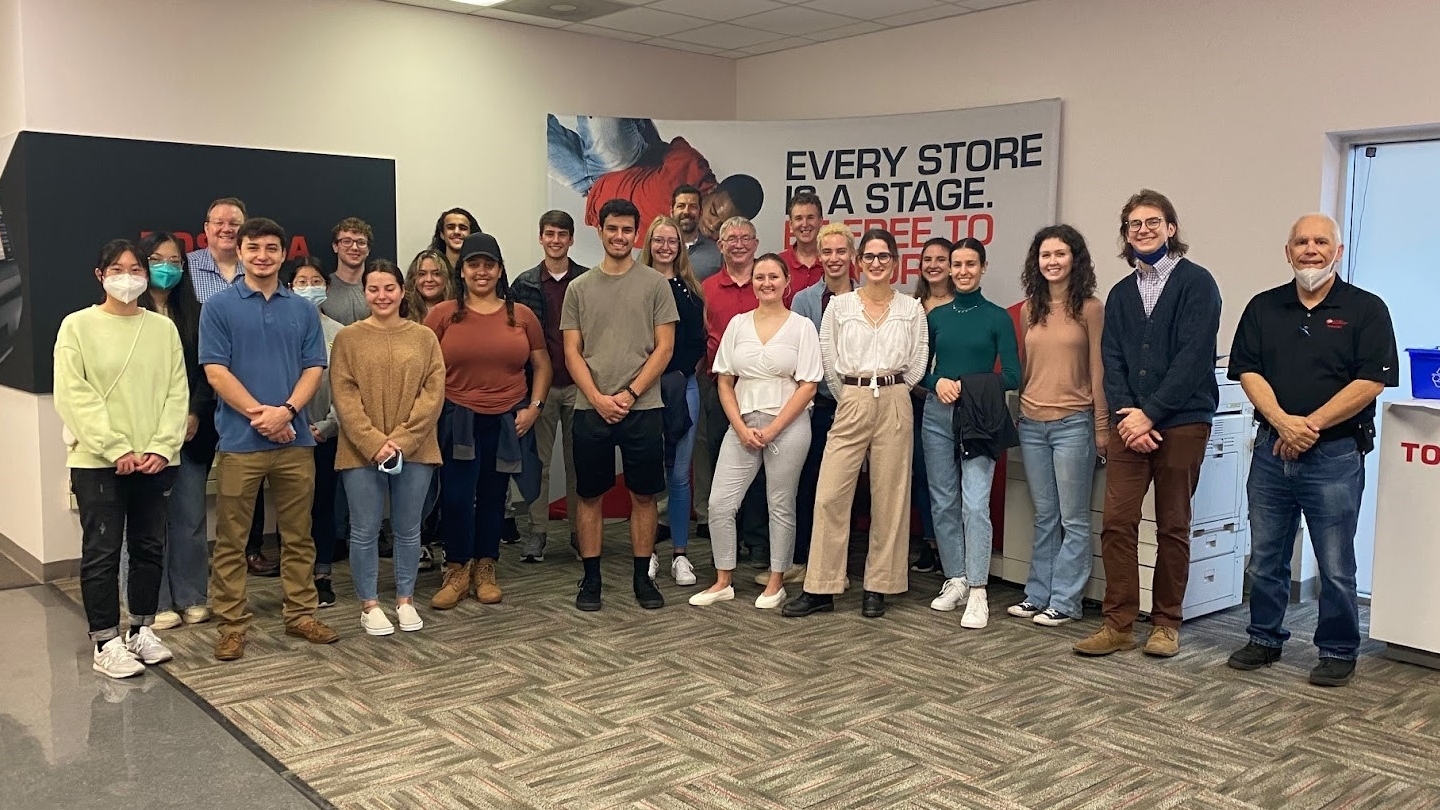Finding a Home With the Wolfpack

It’s certainly not uncommon for college undergrads to change their majors throughout their four plus years on campus. In some cases, like that of Poole College of Management alum Alexis Pyle, a change of schools may even be in order.
Pyle, who grew up in Florida and moved to North Carolina her junior year of high school, started her college journey at Appalachian State University for her first-year, and then transferred to UNC Wilmington for her second.
While she was an international business major at UNCW, she discovered supply chain management as an introductory business course.
She was immediately hooked.
“I was able to see all the different ways I could be a good supply chain professional,” Pyle says. “This was an area where I could combine my creative thinking and analytical skills to solve problems, and then also combine it with my passion for sustainability. I really wanted to be able to do something that could make a positive impact on the world.”
Not long thereafter, Pyle started exploring opportunities for supply chain degrees. “As I was researching, the program at NC State really stood out. That’s really what drove me to pursue my degree there,” she says.
Pyle made the move to Raleigh in 2019 and started taking courses as a business administration major with a concentration in supply chain management.
She graduated in spring 2021 and now works as an associate commodity buyer for the Volvo Group — an experience she feels is undoubtedly a byproduct of her student experience.
In fact, Pyle recently took some time to discuss how exactly she believes NC State played a role in getting her to where she is today:
What did you like most about the supply chain program at NC State?
Pyle: What I liked most was the real-world applications — especially since I was taught by professors with multiple years of supply chain experience. They were able to give us real-world examples and cases that helped us prepare for what we’d see in our careers. I love the fact that it wasn’t so textbook-heavy, and rather what we’re going to see in the real world.
My purchasing class in particular has been very applicable to my current role. A big part of my job now is negotiating, and in class we did a big mock negotiation with fake contracts and everything. That really helped me understand how negotiations are run and how that part of the business works, which was great.
Can you describe your practicum project experience?
Pyle: I had the opportunity to work with Eaton Corporation, a multinational original equipment manufacturer (OEM), for my project. Our objective was to evaluate Eaton’s current suppliers, as well as potential new suppliers, and recommend suppliers that could drive cost savings. We had to work with Eaton to determine what the most important metrics and criteria were to properly assess the supplier capabilities.
We focused our research on the direct material suppliers and used the NC State business library and databases to collect the information. Then we developed and applied a quantifiable ranking system to rank and recommend the suppliers. In the end, we ended up recommending 36 suppliers in three different categories of spend.
Shortly after we provided our recommendations, Eaton sent out a global RFQ, and out of the nine suppliers included in it, we had recommended four of them. It was really awesome to hear that Eaton valued our work enough to include some of the suppliers we had recommended.
Eaton later shared with us that approximately $440k of quoted savings from their RFQ was provided from suppliers we had identified, which they said gave them the leverage to either switch to lower cost suppliers or negotiate better prices with existing ones.
“It was a pleasure to work with Alexis and her team. Her research skills, procurement aptitude, and tenacity helped us identify previously unknown suppliers to improve competition in our supply base. Her team’s work is a great example of the value the SCRC provides to its partner companies.” — Adam Hardie, Category Manager, Eaton
I saw myself change a lot from when I first started the practicum and when we finished. I think that had a lot to do with our advisor, John Zapko. His feedback was so important for my development throughout the process, and he had such important insights for any questions we had about supply chain or business in general.
Do you have any advice for incoming or current students?
Pyle: Get involved. That’s so important. Join clubs that interest you, no matter what it is.
Also, make sure you take the time to build networks with your peers, because your peers are going to be your future colleagues.
But most importantly, attend a career fair. I got hired on the spot as an intern at a career fair. Not only can you get a job, but it can help you practice and learn how to speak professionally, and really helps you narrow down the type of company you want to work for.
Connect with Alexis on LinkedIn
This post was originally published in Supply Chain Resource Cooperative.
- Categories:


